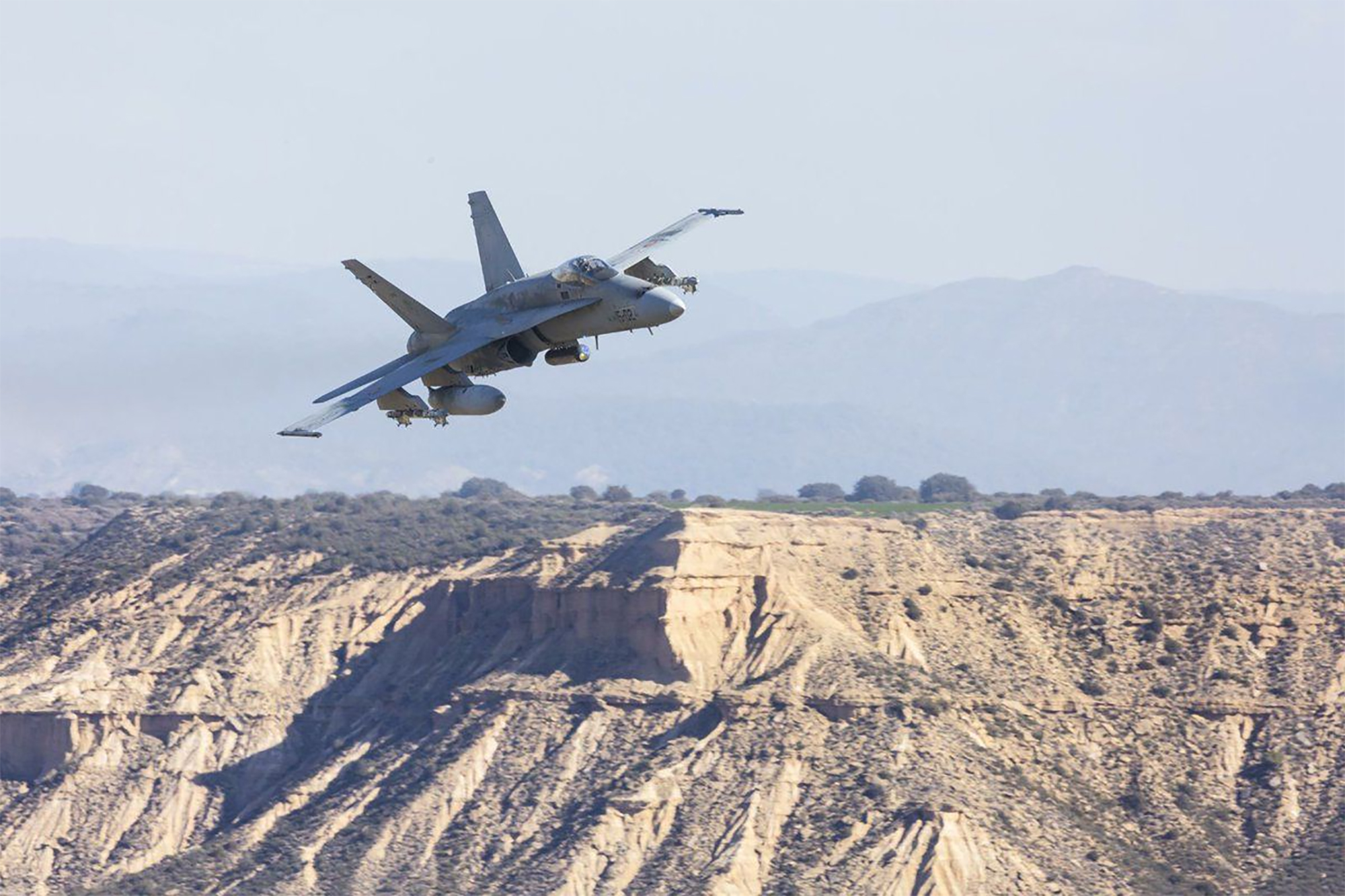Confrontations with the cries of war
- "We are not prepared for whatever comes to us in four or five years' time. The danger lies with us. We must face it: What is happening in Ukraine can happen here too” (...) “Russia, China, but also North Korea and Iran, are working hard to try to weaken North America and Europe. They want to reform the global order” (...) “It’s time to change to a wartime mindset. And that is to accelerate production and defence spending.” These are the words of the newly appointed NATO Secretary-General, Mark Rutte, in his first public speech in Brussels since he took office on 12 December. He imagined a present full of dangers and, if they did not follow NATO's prescriptions, a nightmare future for the Westerners in general and for the Europeans in particular.
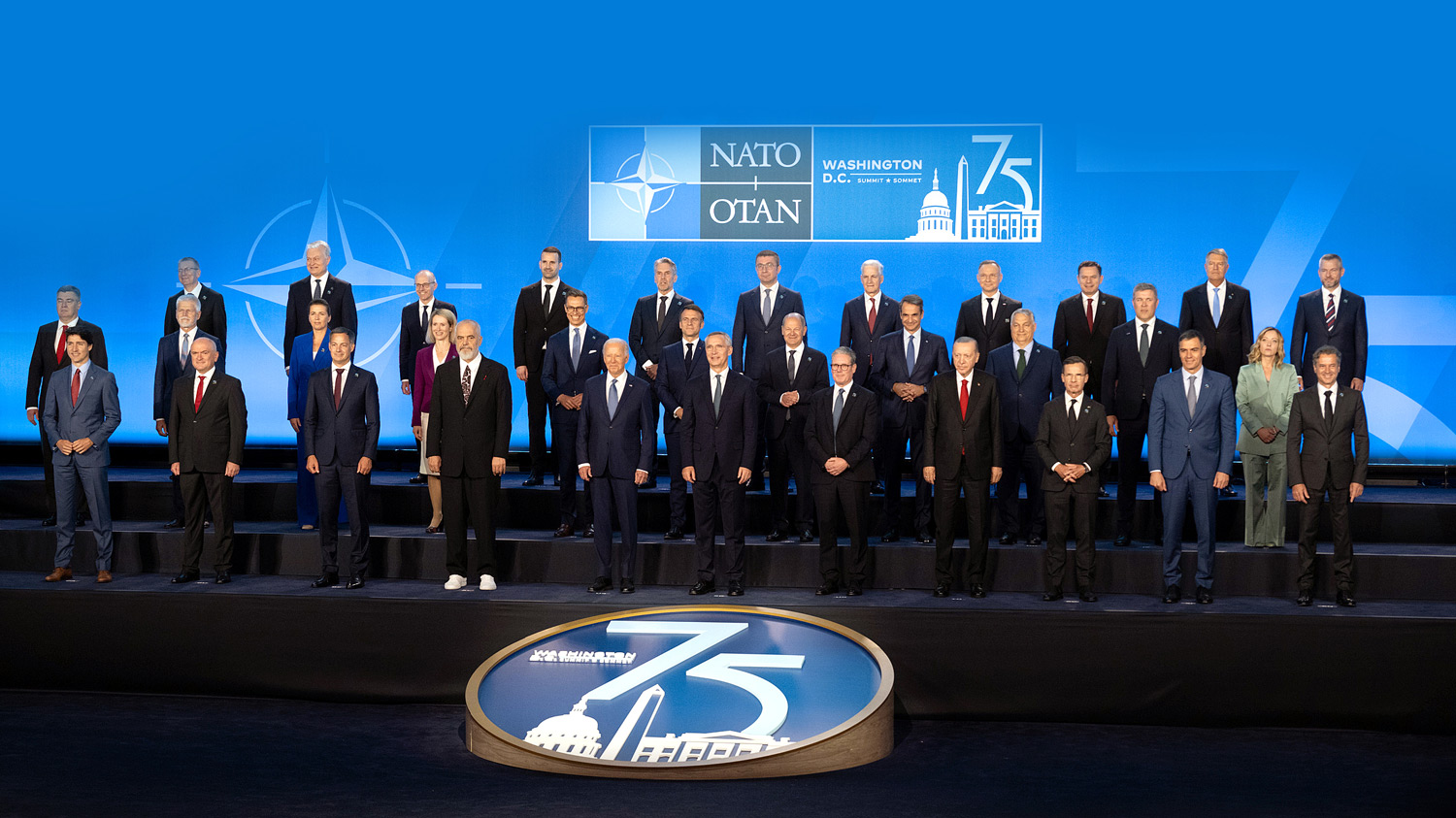
What's the recipe? The same thing that we have constantly heard in recent years from the former Secretary-General, Jens Stoltenberg, or from the President of the European Commission, Ursula Von der Leyen, from authorities in various European states, or from broadcasters of dependent media. The recipe for all of them is the same, but following the dynamics of recent years, a little bit higher than yesterday – a little lower than tomorrow.
No one has the right to shade the West, the attempt itself is an attack, defending our “life model” requires preparing for war and being “faster and saver”, according to Rutte. The European arms industry is “too small, too fragmented and too slow” for “decades of insufficient investment”, and to remedy is a matter of life and death.
How? The head of NATO distributed the duties: “To governments: give our industries the great demands and long-term contracts to produce more and better quickly (...) To the defense industry: you have to do everything you can to keep us safe. There is money on the table and it will only be increased. Make extra shifts and new production lines! (...) to the citizens of NATO countries, especially in Europe: decide [the authorities] that today they agree to make sacrifices so that tomorrow we are safe.”
What are the “sacrifices” that citizens have to accept? “European countries easily spend a quarter of their income on pension, health and social security systems. We need a small part of that money.”
“There’s money on the table and it’s just going to be an increase. Make additional shifts and new production lines!” (Mark Rutte, new NATO Secretary-General)
Militaristic delusion started some time ago.
The strategy presented by Rutte as a request for tomorrow, however, has been prevailing for some time. Since 2017, for the first time in its history, the EU has a specific item for military spending. The budget of the European Defence Fund has grown greatly in the context of the war in Ukraine; the EUR 13 billion planned for 2021-2027 has already been spent; and EU Defence Commissioner Andrius Kubilius, who has just created the post, has proposed an expenditure of EUR 100 billion for the period 2028-2035. To this must be added the own expenditure that each State does. NATO European countries approved in 2014, under the threat of Obama, the Nobel Peace Prize, the objective of raising military spending to 2% of GDP and since then growth has been constant, especially in recent years. Meanwhile, expenditure on health, education, pensions or public benefits has declined in all cases.
But it's not enough. In Brussels, Rutte suggested a new 3% barrier for states -- or 4%. The ban on national banks and pension funds investing in armaments is also lifted. At EU level, the authorities and the Armero lobby have been pressing for a long time to achieve the same with the European Investment Bank.
There's another fundamental change. In the past, Europe was buying almost all weapons from the United States. In 2024 the European Commission presented the European Industrial Defence Strategy. The new strategy makes it a condition that at least 50% of the EU’s military expenditure is spent on the industry of neighbouring countries, with the participation of at least three countries. The EU believes that the development of the European arms industry is a strategic strategy, and that there will be no lack of money and other facilities to achieve this.
.jpg)
Basque Country, Western reflection
The vitorian antimilitarist side has carried out an analysis of the European arms industry and the belligerent speeches in the book Dissolution of the military industry in Euskal Herria not to make more wars (Adaptation of the arms industry in Euskal Herria not to create more wars) that it has just published. And that has put before us his reflection in Hego Euskal Herria with a very deep investigation. The arms industry of Ipar Euskal Herria has not been analyzed for the difficulties in obtaining data, which are even greater. If the 2008 investigation identified 70 companies, research centres or institutions related to the arms industry, 15 years later 206, it is considered that they are actually “more notable”. Of the total 206 entities, 187 are companies, 11 technological or research centres, five universities and three financial institutions.
Several factors explain that for fifteen years the arms industry has tripled, according to Vitoria, among others: the “spectacular boom” of military budgets and aid, the “uptake” of civil research by the military industry, the leading role of small and medium-sized enterprises and especially of new technologies, the growing involvement of educational institutions, the expansion of large Basque companies to internationalization, or, “the most worrying thing,” the new citizenship.
"If until a few years ago everything that could be understood as cooperation with militarism and the military stratum provoked rejection and rejection among the vast majority of the society of Euskal Herria, today it is not so", reads in the book: In 2008, companies hid their military production; in 2025, many claimed it. It is not the change that only the Vitorian team perceives in the Buesa Arena and the Buesa Arena. One of the trade unionists interviewed at this LARRUN says he has noticed that the workers have been ashamed of engaging in the manufacture of weapons, and not today. The same recognition has been perceived by the entrepreneurs, or by the professor of the UPV/EHU Iñaki Etaio, among colleagues and students related to the arms industry, as read in the book. Rutte’s “war on mindset” is a fertile land for further deepening.
A few years ago Basque companies concealed their military production; in 2025 many demand it
Transform or kill
In this European and Basque context, the anti-militarist movement has put on the table a proposal for the adaptation of the arms industry. For a “transformative” adaptation, they wanted to qualify: not only does it seek to replace military production with civil production, but it also feeds another society the one that is produced and the way it is produced, to end the capitalism and patriarchy that have brought us here.
ARGIA has spoken to antimilitarists and trade unions that should play a fundamental role in the workplaces. The honesty of the words of both is what makes the reader find many difficulties in their own words, but also the readiness to try it and some strength. To highlight one of these strengths: How many countries in the West are the majority of trade unions prepared to take account of such a proposal?
303. At LARRUN we have deepened the project of “transformative adaptation” of the arms industry. Aware that the proposal seems to be a chimera; knowing that if it is not going to be of the species, it will ever have to be done, not only with the arms industry, but also with work and employment in general.
To conclude the previous article, we put on the table an objective that Zedarria and the Basque Government do not want to address when talking about production for waste and war in the Basque Country (EHXGE, or military industry): That there is no war in the world that feeds on... [+]
A few weeks ago, the President of the European Union, Ursula von der Leyen, reported on the need for military spending of eight hundred billion euros. This expenditure is said to be in response to a military threat to which Europe is exposed, and it has been confirmed that there... [+]
As we explained in our book on adaptation, in view of the decline in European military spending since the late 1980s of the last century, at the beginning of the 21st century European death traders decided to organize themselves and structured themselves as lobbies imitating the... [+]
In recent weeks and months, all kinds of political, economic and business organizations have been constantly raising the sounds of war. But what if the purpose of this buzzing noise was not to allow us to think clearly and the fear was to confuse our analysis? Let’s try to... [+]
At the beginning of the year, the Zedarria group publicly supported the "opening of the debate" on the "defense" industry (as well as the nuclear industry), to which the Basque Government has immediately joined. First, through Mikel Torres, Vice President and Economic Counselor, who... [+]
Ukrainaren ondoren Polonia?
Europar Batasunak Ukrainako gerra hauspotu du Kiev armaz hornituta, eta menia oraindik airean delarik, gerraren zikloan murgilduta dago bete-betean. Hori bai, bere diskurtsoa modulatzen ari da, eta gero eta gehiago hitz egiten du balizko su-etenaz... [+]
Bizitza erdigunean jartzeko abagunea ikusi genuen feministok zein ekologistok Covid-19 pandemia garaian. Ez ginen inozoak, bagenekien boteretsuak eta herritar asko gustura itzuliko zirela betiko normaltasunera. Bereziki, konfinamendu samurra pasa zutenak haien txaletetan edo... [+]
At the end of June we finished the first parts of the book Conversión de la industria militar en Euskal Herria para no fabricar más guerras (Adaptation of the arms industry in the Basque Country so as not to create more wars) La guerra is coming! It explores and investigates... [+]
Historia errepikatzen dela idatzi zuen Marxek, “lehenik tragedia gisa, gero fartsa moduan”. Armagintzaren eta militarismoaren inguruan errepikapen hutsa ez, espiralean goraka doan buklea ari gara bizitzen, fartsatik asko duena, eta tragedian amaitzeko gero eta aukera... [+]
“Ez dugu gerraren aurrean etsi nahi, ez dugulako hilerrietako bakea nahi”, dio manifestuak, eta agintariei irtenbide politiko baten alde lanean jartzeko eskatu diete. Sinatzaileen artean daude Delàs institutua, Gernika Gogoratuz edo Ongi Etorri Errefuxiatuak... [+]









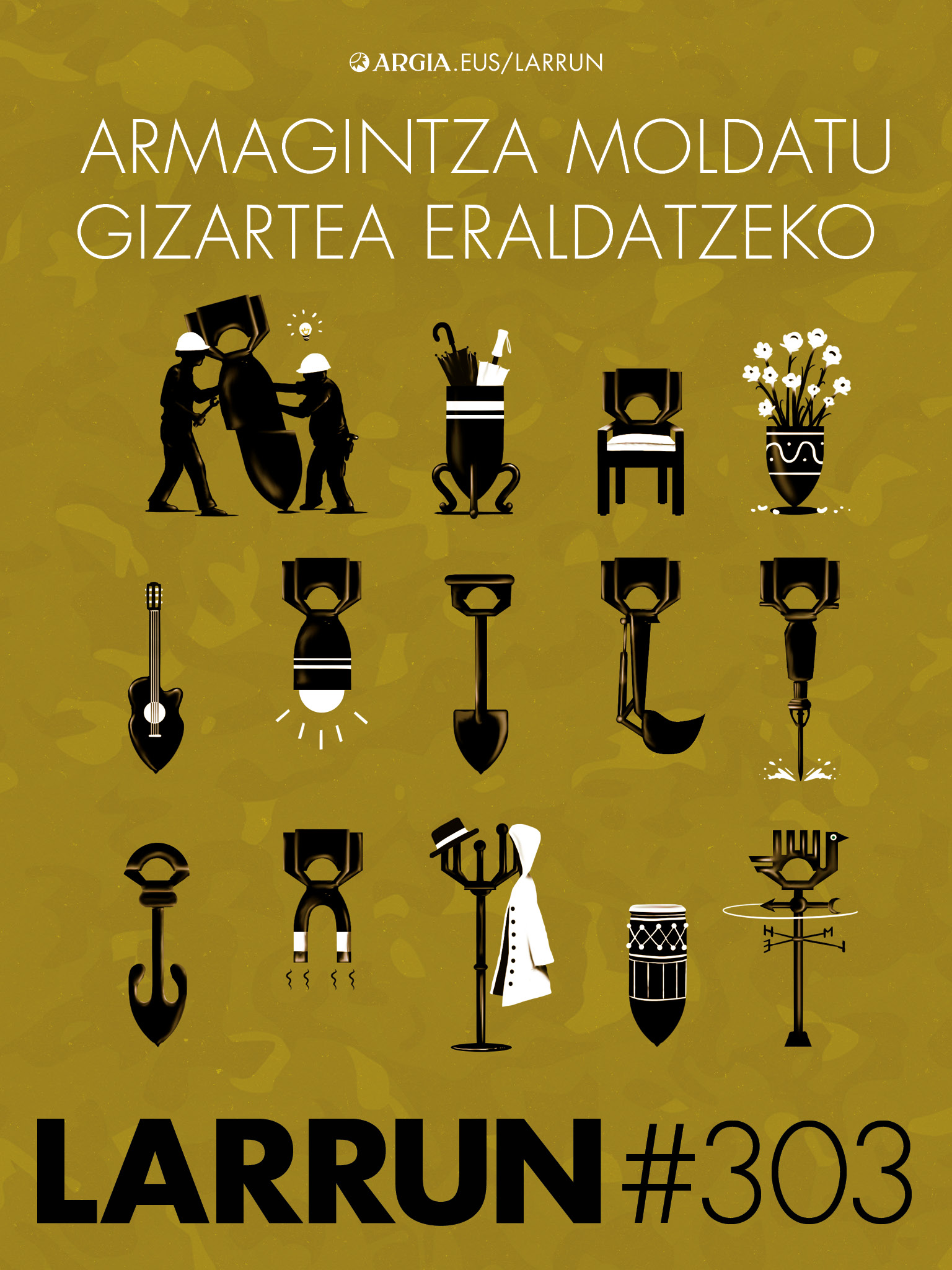

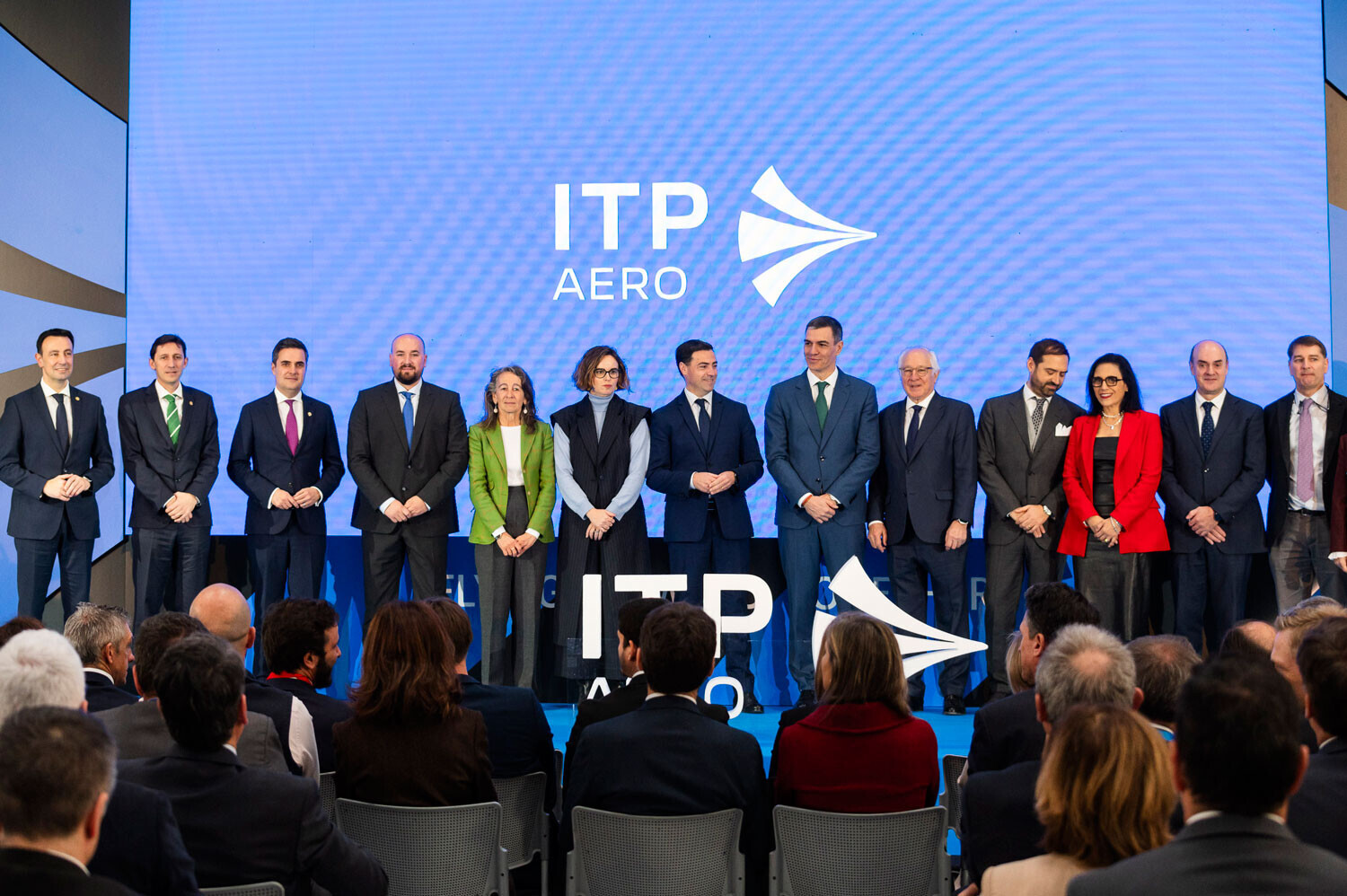

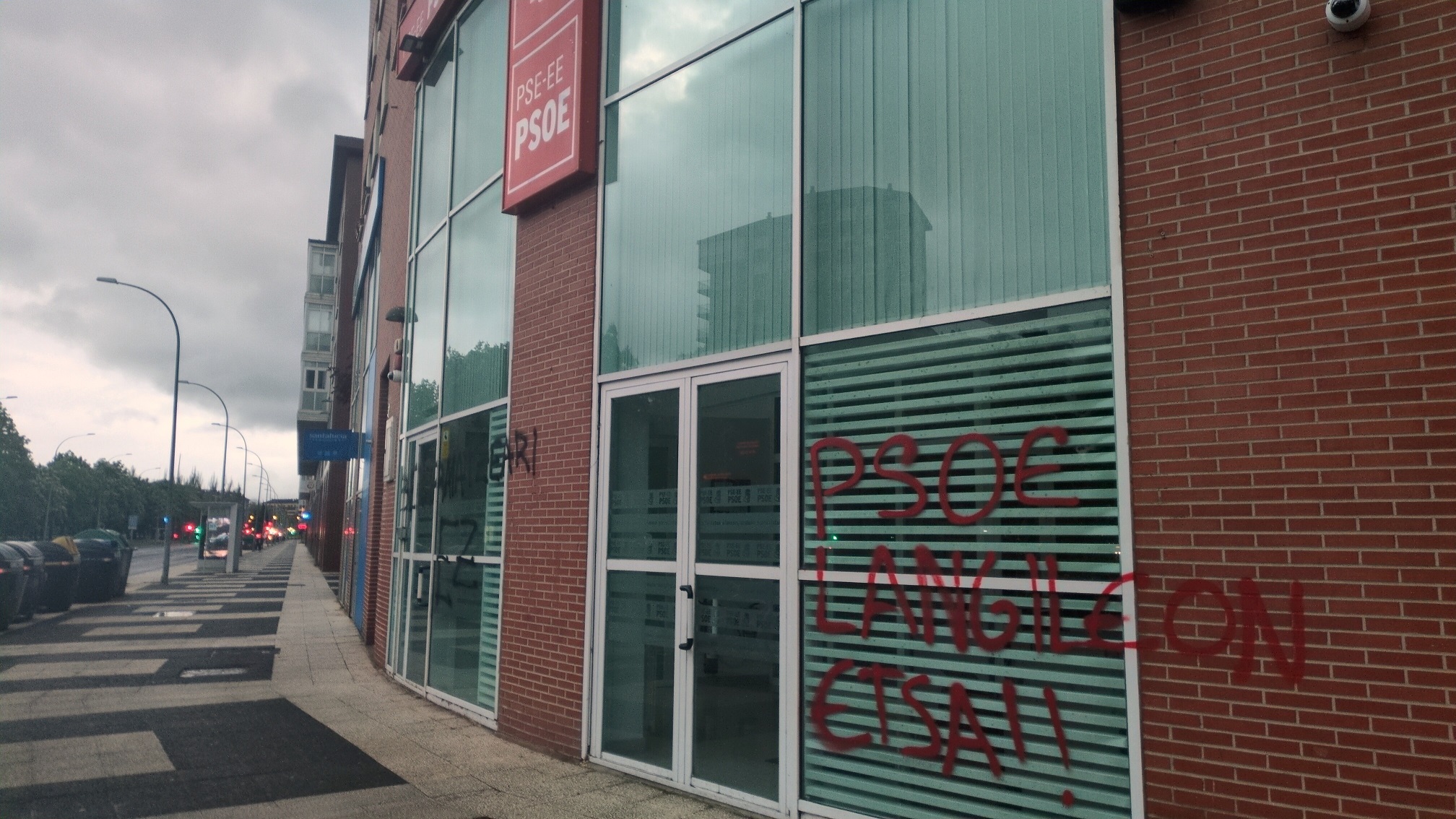
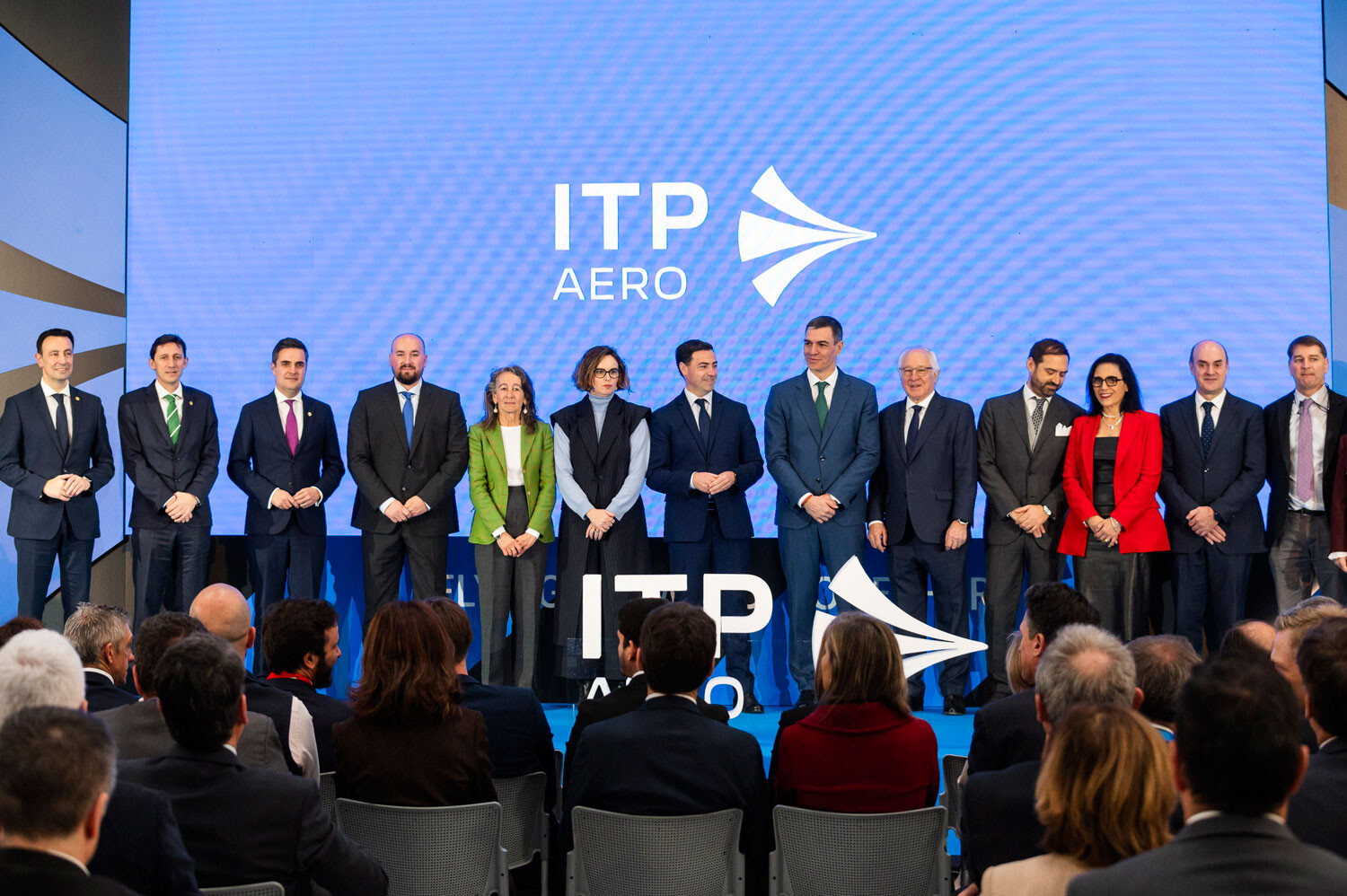
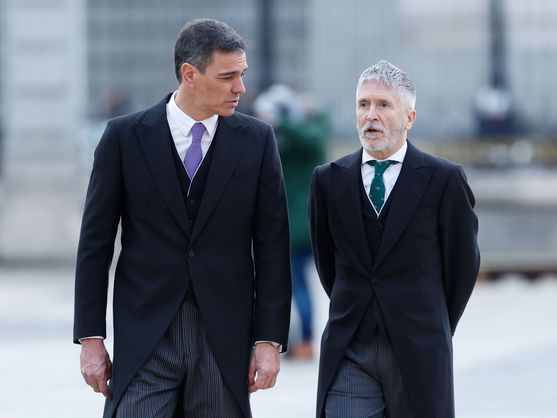
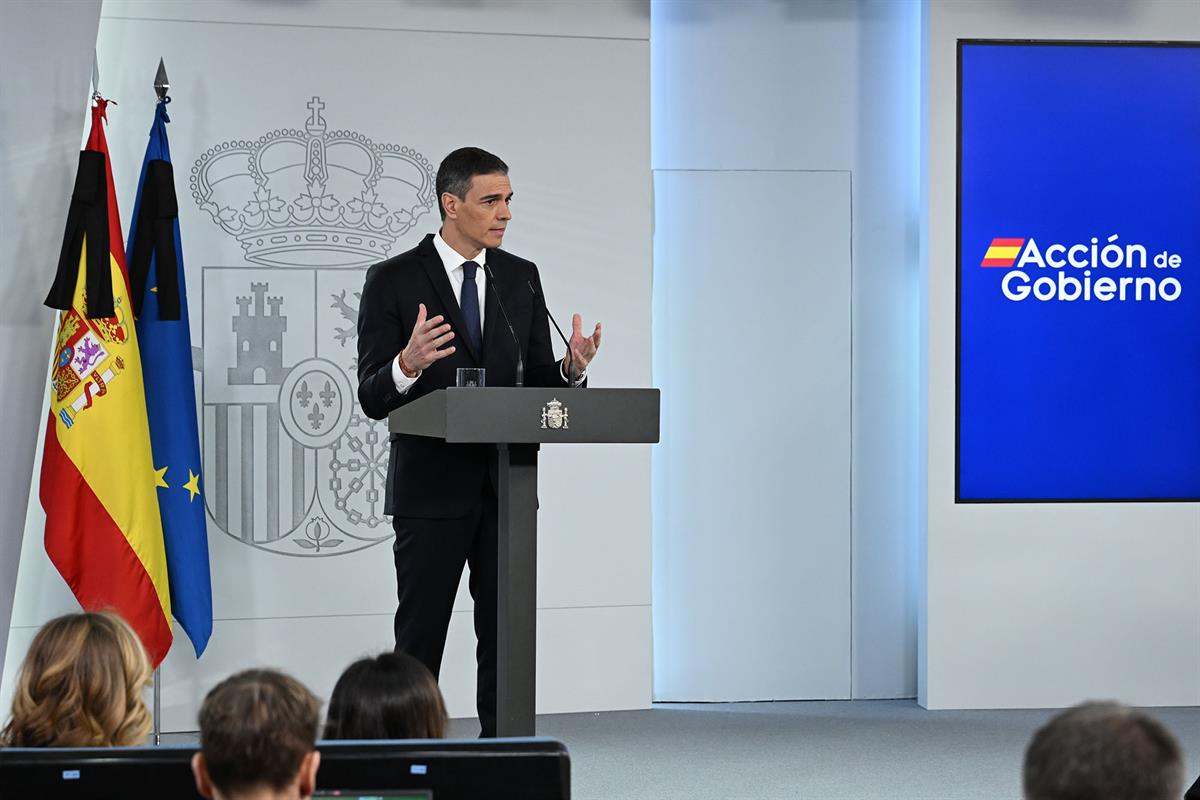
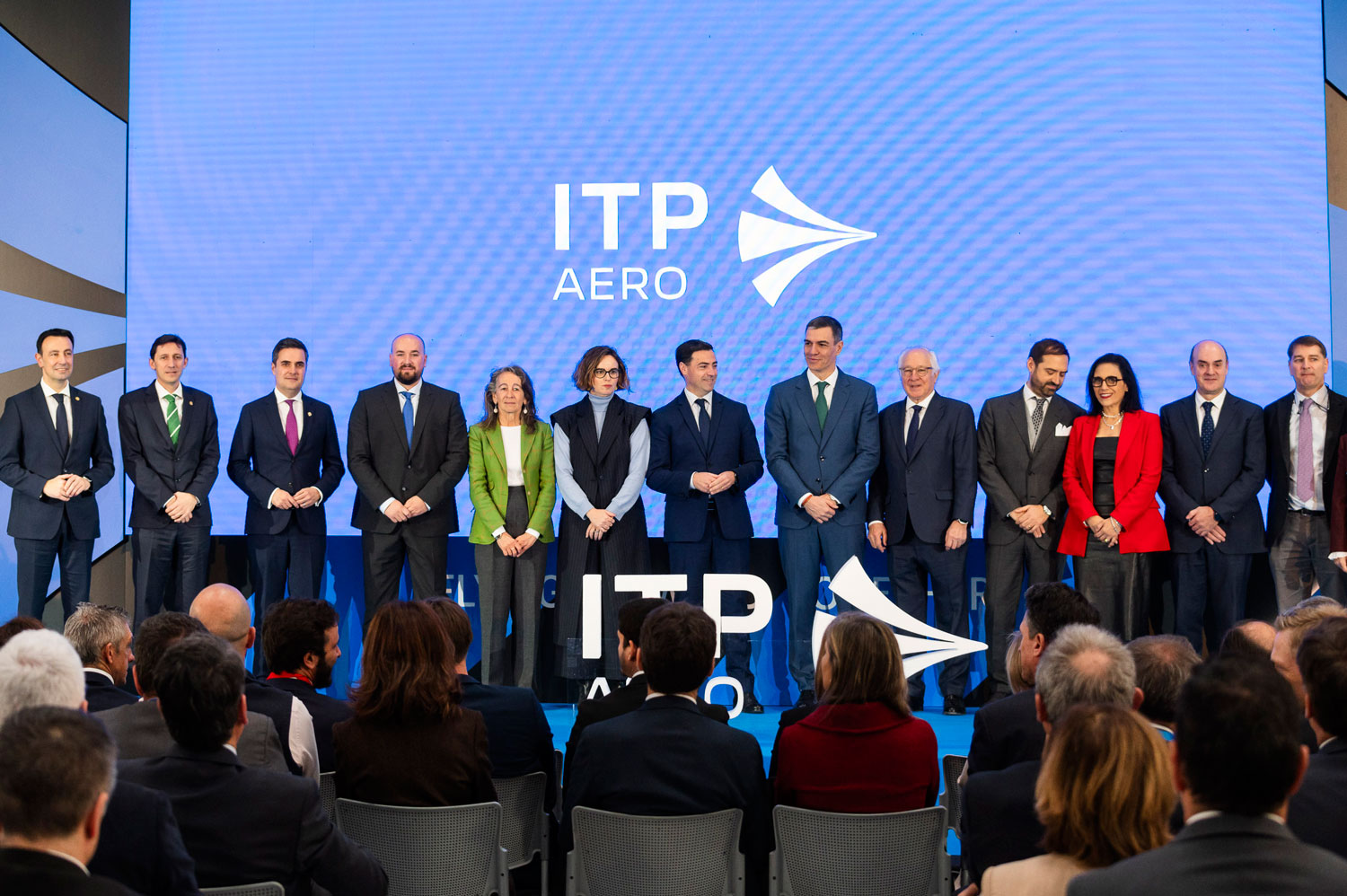

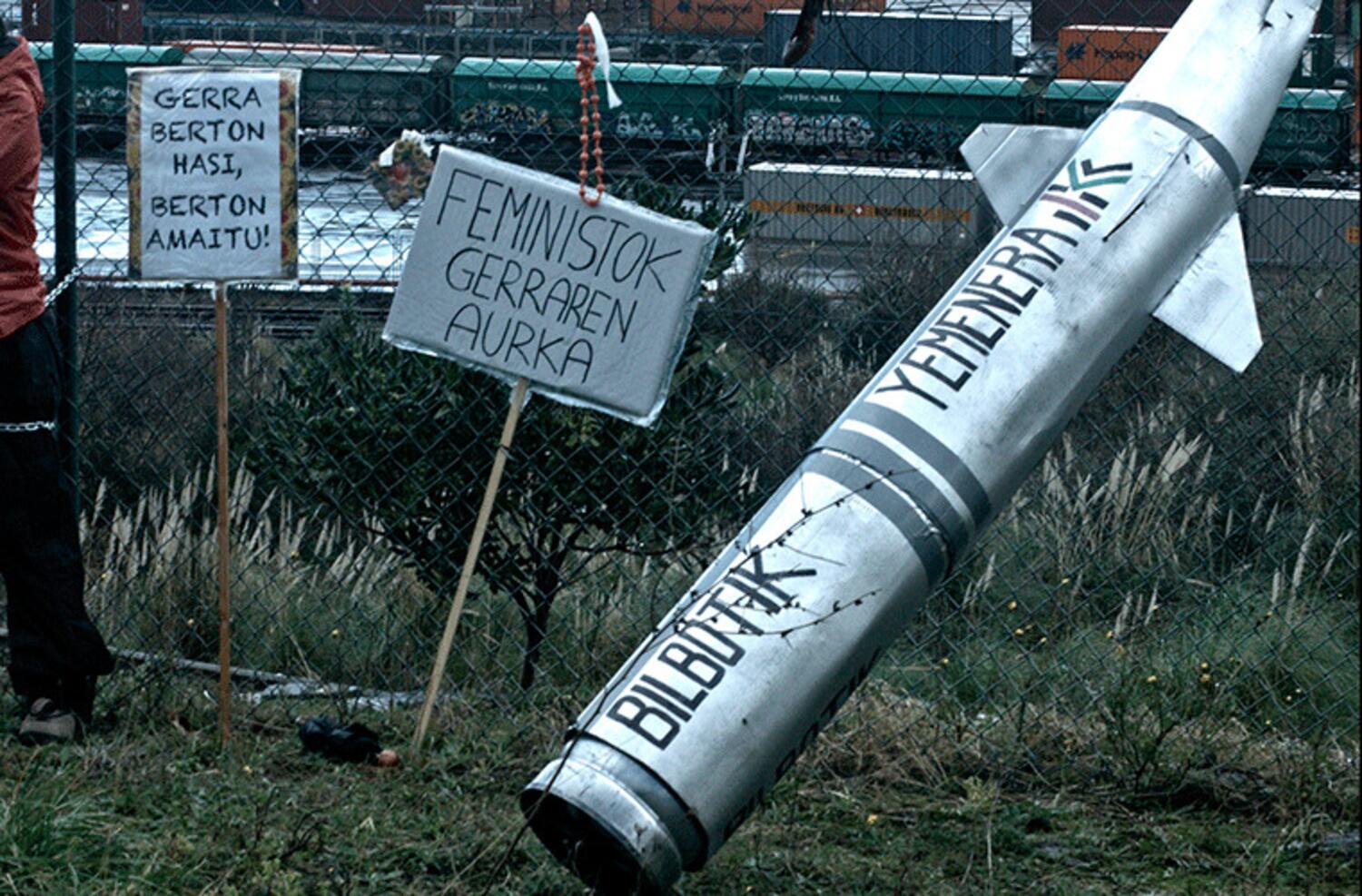

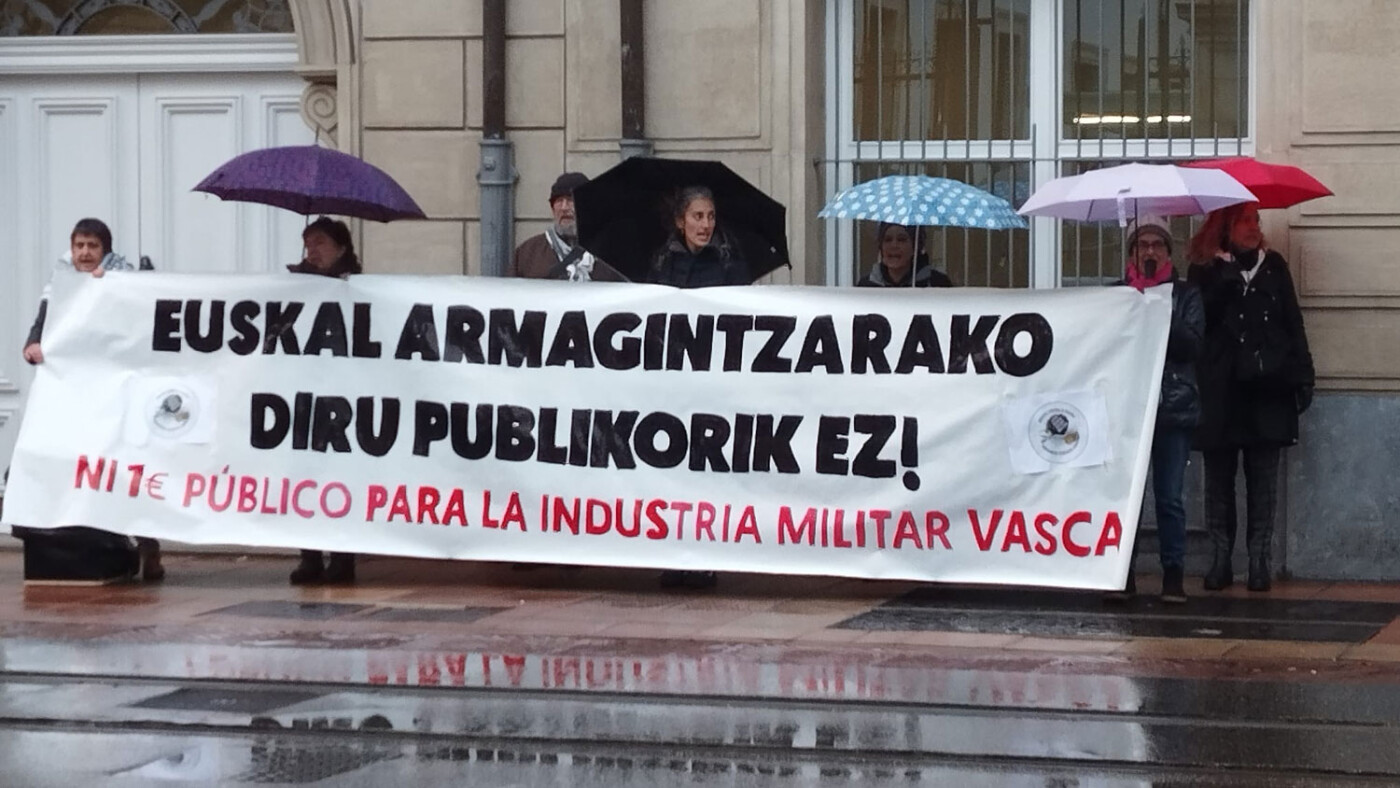
.jpg)

